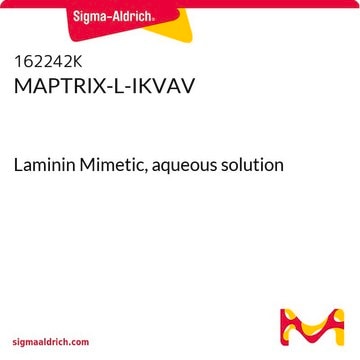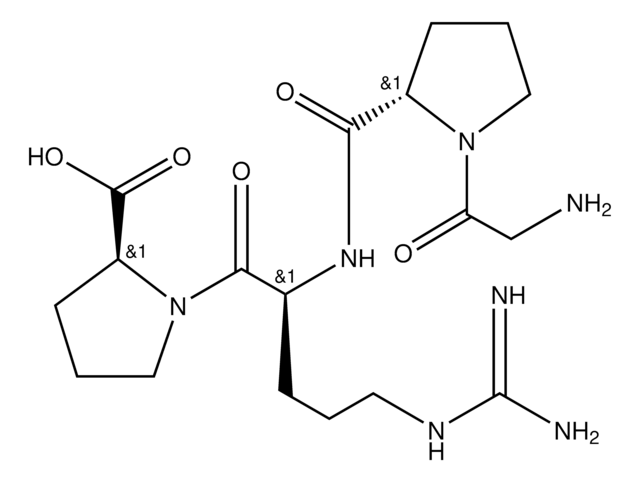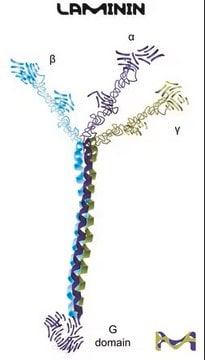T7154
Tyr-Ile-Gly-Ser-Arg
≥97% (HPLC)
Synonym(s):
Laminin Fragment 929-933
About This Item
Recommended Products
biological source
synthetic (organic)
Quality Level
Assay
≥97% (HPLC)
form
powder
technique(s)
cell culture | mammalian: suitable
solubility
H2O: soluble 1 mg/mL, clear, colorless
storage temp.
−20°C
SMILES string
CC[C@H](C)[C@H](NC(=O)[C@@H](N)Cc1ccc(O)cc1)C(=O)NCC(=O)N[C@@H](CO)C(=O)N[C@@H](CCCNC(N)=N)C(O)=O
InChI
1S/C26H42N8O8/c1-3-14(2)21(34-22(38)17(27)11-15-6-8-16(36)9-7-15)24(40)31-12-20(37)32-19(13-35)23(39)33-18(25(41)42)5-4-10-30-26(28)29/h6-9,14,17-19,21,35-36H,3-5,10-13,27H2,1-2H3,(H,31,40)(H,32,37)(H,33,39)(H,34,38)(H,41,42)(H4,28,29,30)/t14-,17-,18-,19-,21-/m0/s1
InChI key
MWOGMBZGFFZBMK-LJZWMIMPSA-N
Amino Acid Sequence
Application
Biochem/physiol Actions
Preparation Note
Storage Class Code
11 - Combustible Solids
WGK
WGK 3
Flash Point(F)
Not applicable
Flash Point(C)
Not applicable
Personal Protective Equipment
Certificates of Analysis (COA)
Search for Certificates of Analysis (COA) by entering the products Lot/Batch Number. Lot and Batch Numbers can be found on a product’s label following the words ‘Lot’ or ‘Batch’.
Already Own This Product?
Find documentation for the products that you have recently purchased in the Document Library.
Customers Also Viewed
Our team of scientists has experience in all areas of research including Life Science, Material Science, Chemical Synthesis, Chromatography, Analytical and many others.
Contact Technical Service








